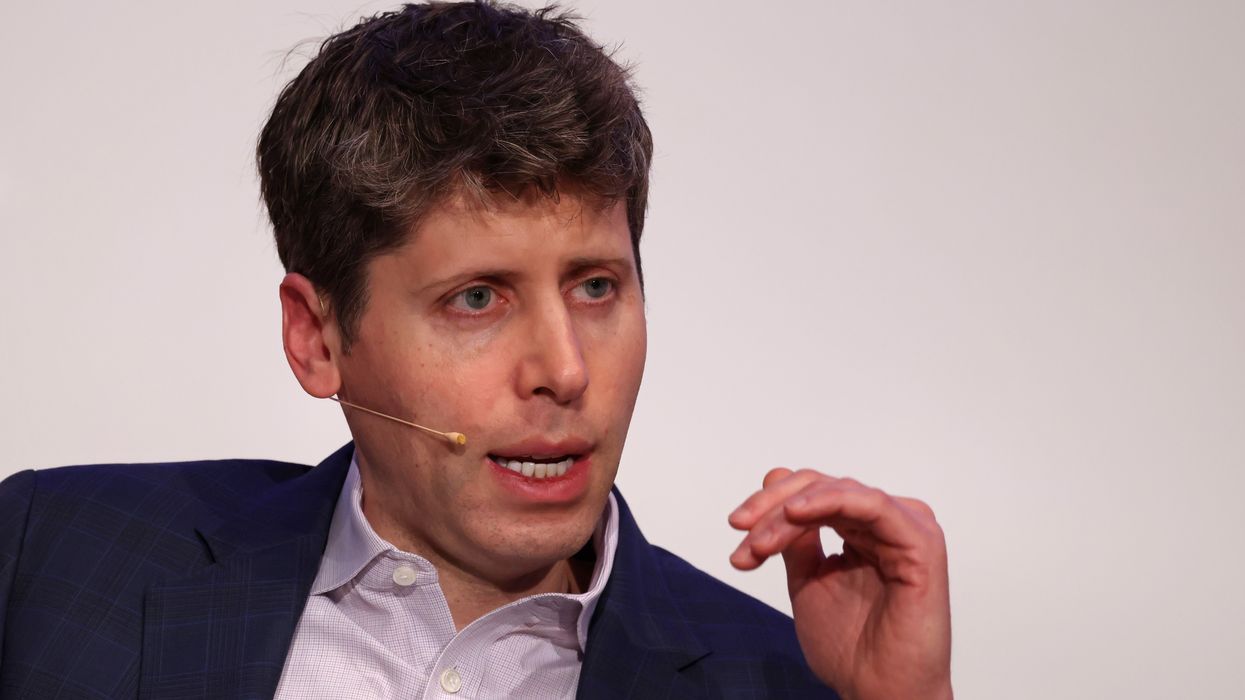OpenAI CEO Sam Altman has announced temporary limitations on the company’s image generation feature in response to overwhelming demand driven by a viral trend. On Thursday, Altman addressed the impact of the popular Ghibli-style image trend on OpenAI’s resources, particularly its reliance on GPUs (graphics processing units). Altman revealed that the surge in demand for ChatGPT’s image generation tool has led to significant strain on the company’s infrastructure, prompting the introduction of temporary speed limits for users.
In a post on X (formerly Twitter), Altman shared the company’s response to the unexpected demand, stating, “It’s super fun seeing people love images in ChatGPT, but our GPUs are melting. We are going to temporarily introduce some rate limits while we work on making it more efficient. Hopefully won’t be long! ChatGPT free tier will get 3 generations per day soon.”
Altman’s post highlights that the free tier of ChatGPT users will now be limited to generating just three images per day. This limitation is being introduced to help manage the strain on the company’s GPUs, which power the computationally intensive image generation process. The rate limits are intended to be temporary while OpenAI works on improving efficiency and addressing the high demand.
The CEO also acknowledged that the company is currently encountering issues with its image generation tool, stating, “Also, we are refusing some generations that should be allowed; we are fixing these as fast as we can.” This suggests that some users have experienced difficulties in generating images that would typically be supported, a problem OpenAI is working to resolve.
What is the Ghibli image trend?
OpenAI’s image generation feature was recently introduced, allowing users to create images directly within the ChatGPT interface. This new functionality has sparked a viral trend on social media, where users have been converting their photos into the style of Studio Ghibli animation, known for its dreamlike visuals and soft colour palettes. The trend has resonated with many, as people have been transforming personal images, such as family portraits or travel photos, into the distinctive Ghibli aesthetic.
Studio Ghibli, a Japanese animation film studio, has long been revered for its hand-drawn animation and rich, human-centred storytelling. The Ghibli style, made famous by films like Spirited Away and My Neighbor Totoro, is characterised by detailed landscapes, pastel tones, and a nostalgic yet fantastical feel. The current trend of generating images in the Ghibli style has quickly gained momentum, flooding social media with anime-inspired transformations of everyday moments.
Even Sam Altman, CEO of OpenAI, embraced the trend by changing his profile picture on X to a Ghibli-style portrait. This viral phenomenon has resulted in a significant increase in the use of OpenAI’s image generation tool, contributing to the technical strain experienced by the company.
Studio Ghibli: A legacy in animation
Studio Ghibli, founded in 1985 by Miyazaki Hayao, Takahata Isao, and Suzuki Toshio, is one of the most celebrated animation studios in the world. Known for producing high-quality, hand-drawn animated films, the studio’s works are beloved for their emotional depth, strong characters, and unique artistic style.
Some of Studio Ghibli’s most notable films include Spirited Away (2001), which won an Academy Award for Best Animated Feature, Howl’s Moving Castle (2004), Kiki’s Delivery Service (1989), and Princess Mononoke (1997). These films have made a lasting impact on the global animation industry, with Ghibli’s intricate animation techniques and storytelling approach setting the gold standard for traditional animation.
The enduring appeal of Studio Ghibli’s films is evident in the current viral trend, where users are seeking to replicate the studio’s distinct style in their personal images using OpenAI’s tools.
Limitations on OpenAI’s image generation tool
OpenAI’s native image generation feature, recently rolled out to users of ChatGPT, allows individuals to create highly customised images and edit their existing photos. The feature is available to Plus, Pro, Team, and Free users of the chatbot, but the rollout to free-tier users has been delayed due to the high demand. Sam Altman confirmed that the delay is a temporary measure while OpenAI addresses the technical challenges posed by the viral trend and the heavy use of GPU resources.
According to Altman’s post, the current rate limit of three image generations per day for free-tier users is designed to alleviate the pressure on the company’s infrastructure. OpenAI is actively working on optimising the image generation feature, with hopes of restoring normal functionality soon. The company has not provided a specific timeline for when the temporary rate limits will be lifted, but Altman expressed optimism that the issues would be resolved in the near future.
Update on GPT-4o
In addition to the updates on the image generation tool, Sam Altman also announced an update to GPT-4o, which is OpenAI’s latest pre-trained model. Altman described GPT-4o as “particularly good at coding, instruction following, and freedom.” This update signals continued advancements in OpenAI’s core models, further enhancing the capabilities of ChatGPT.
GPT-4o represents the latest iteration of OpenAI’s powerful language models, offering improved performance in key areas such as coding assistance and complex instruction-following tasks. The update to GPT-4o is expected to further strengthen ChatGPT’s utility for a wide range of users, from developers seeking help with code to individuals using the platform for everyday problem-solving and creative tasks.
Challenges
The viral Ghibli-style image trend has brought immense attention to OpenAI’s image generation capabilities, but the surge in demand has also created challenges for the company’s infrastructure. In response, OpenAI has introduced temporary rate limits to manage the load on its GPUs, limiting free-tier users to three image generations per day. The company is working quickly to improve the efficiency of its tools while addressing ongoing issues with image generation. Meanwhile, OpenAI’s latest update to GPT-4o brings new improvements in coding and task execution, further expanding the capabilities of the ChatGPT platform.





